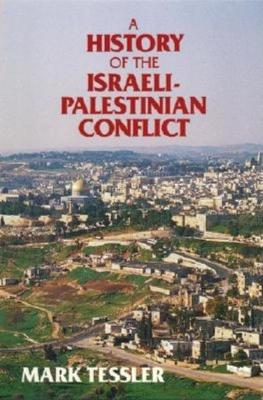Indiana Series in Arab & Islamic Studies
1 total work
Mark Tessler's timely, comprehensive, and objective history of the Israeli-Palestinian conflict from earliest times to the present provides a constructive framework for thinking realistically about the prospects for peace. Drawing upon a wide array of documents and on research by Palestinians, Israelis, and others, Tessler assesses the conflict on both the Israelis' and the Palestinians' terms. Part 1 treats the early history of Jews and Arabs in the area of Palestine (before there was a conflict) and traces the congruent origins of modern Zionism and Arab nationalism. Part 2 examines the period of the British mandate, World War I, and the creation of the State of Israel in 1948. Part 3 analyzes the issues that shaped the conflict from 1948 until the June 1967 war, including debates about the legitimacy of Israel and about the origins and consequences of the Palestinian exodus.Renewed attention to the Palestinian question after 1967 is the major focus of Part 4, which covers the period through the Camp David negotiations of the late 1970s.
Part 5 examines the military and political confrontations between Israelis and Palestinians in the 1980s, including the war in Lebanon and the intifada and the beginning of peace negotiations in the early 1990s through the Israeli-PLO accord of 1993. A central concern throughout is the prospect for Israeli-Palestinian reconciliation. Highlighting the historic symmetry of the two peoples and emphasizing the potential for cooperation between them, Tessler presents the case for mutual recognition and a two-state solution.
Part 5 examines the military and political confrontations between Israelis and Palestinians in the 1980s, including the war in Lebanon and the intifada and the beginning of peace negotiations in the early 1990s through the Israeli-PLO accord of 1993. A central concern throughout is the prospect for Israeli-Palestinian reconciliation. Highlighting the historic symmetry of the two peoples and emphasizing the potential for cooperation between them, Tessler presents the case for mutual recognition and a two-state solution.
